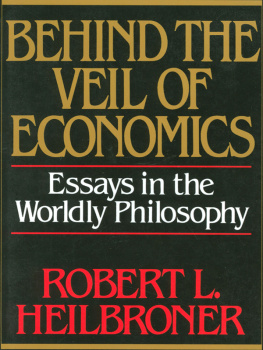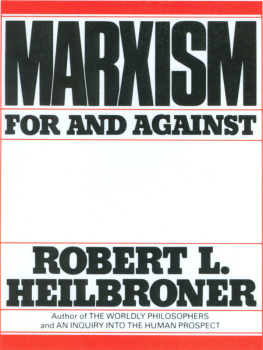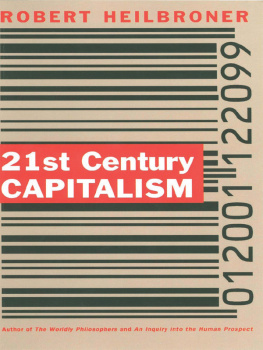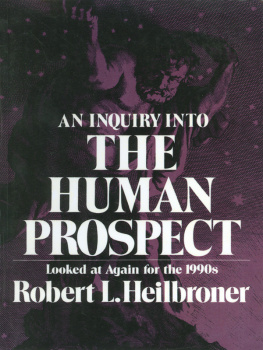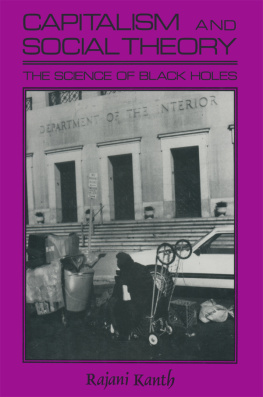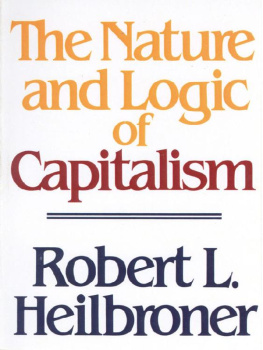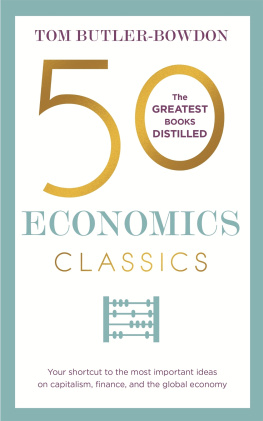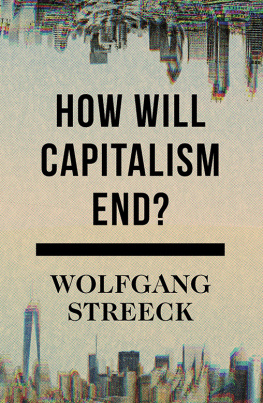Heilbroner - Behind the veil of economics: essays in the worldly philosophy
Here you can read online Heilbroner - Behind the veil of economics: essays in the worldly philosophy full text of the book (entire story) in english for free. Download pdf and epub, get meaning, cover and reviews about this ebook. City: New York, year: 1988;2013, publisher: W. W. Norton & Company, genre: Politics. Description of the work, (preface) as well as reviews are available. Best literature library LitArk.com created for fans of good reading and offers a wide selection of genres:
Romance novel
Science fiction
Adventure
Detective
Science
History
Home and family
Prose
Art
Politics
Computer
Non-fiction
Religion
Business
Children
Humor
Choose a favorite category and find really read worthwhile books. Enjoy immersion in the world of imagination, feel the emotions of the characters or learn something new for yourself, make an fascinating discovery.
- Book:Behind the veil of economics: essays in the worldly philosophy
- Author:
- Publisher:W. W. Norton & Company
- Genre:
- Year:1988;2013
- City:New York
- Rating:5 / 5
- Favourites:Add to favourites
- Your mark:
- 100
- 1
- 2
- 3
- 4
- 5
Behind the veil of economics: essays in the worldly philosophy: summary, description and annotation
We offer to read an annotation, description, summary or preface (depends on what the author of the book "Behind the veil of economics: essays in the worldly philosophy" wrote himself). If you haven't found the necessary information about the book — write in the comments, we will try to find it.
Behind the veil of economics: essays in the worldly philosophy — read online for free the complete book (whole text) full work
Below is the text of the book, divided by pages. System saving the place of the last page read, allows you to conveniently read the book "Behind the veil of economics: essays in the worldly philosophy" online for free, without having to search again every time where you left off. Put a bookmark, and you can go to the page where you finished reading at any time.
Font size:
Interval:
Bookmark:

Books by Robert L. Heilbroner
The Essential Adam Smith
The Nature and Logic of Capitalism
Economics Explained
(with Lester C. Thurow)
Marxism: For and Against
Beyond Boom and Crash
The Economic Transformation of America
(with Aaron Singer)
Business Civilization in Decline
An Inquiry into the Human Prospect
Between Capitalism and Socialism
The Economic Problem
(with James K. Galbraith)
The Limits of American Capitalism
A Primer on Government Spending
(with Peter L. Bernstein)
The Great Ascent
The Making of Economic Society
The Future as History
The Quest for Wealth
The Worldly Philosophers
Robert L. Heilbroner
Behind the Veil of Economics
Essays in the Worldly Philosophy

W W NORTON & COMPANY
NEW YORK LONDON
Copyright 1988 by Robert L. Heilbroner
All rights reserved.
Published simultaneously in Canada by Penguin Books Canada Ltd., 2801 John Street, Markham, Ontario L3R 1B4.
Printed in the United States of America.
Library of Congress Cataloging-in-Publication Data
Heilbroner, Robert L.
Behind the veil of economics.
Essays in the worldly philosophy
Includes index.
1. Capitalism. 2. Economics. I. Title.
HB501.H396 1988 330.122 87-20392
ISBN 0-393-30577-5
ISBN 978-0-393-24263-8 (e-book)
W. W. Norton & Company, Inc., 500 Fifth Avenue, New York, N.Y. 10110
W. W. Norton & Company Ltd., 37 Great Russell Street, London WC1B 3NU
Contents
HERE IS a collection of essays that discuss economics from an unaccustomed point of view. In the prevailing conception, economics is the study of our society as a price systemthat is, a study of the manner in which the private and self-interested activities of individuals are given coherence and design by the workings of the market mechanism. This ancient and fascinating problem, for which Adam Smith supplied an answer in the workings of the Invisible Hand and Karl Marx in the laws of motion of capitalism, remains central to the analytic task of economicsbut not central to its constitutive nature. It is what economics does, but not what economics is.
The latter question provides the focus of interest for the present book. As my title announces, I am more interested in economics as a veil that obscures our social understanding than as a technique for discovering how our society works. What does the veil obscure? That the price system is also a system of power; that the work of analysis is inescapably colored by ideology and initiated by untestable visions; that the object over which the veil is spread is not a collection of individuals but a specific social order to which we give the name capitalism. All this indicates the distance that separates my view of economics from that of the great majority of its contemporary practitioners, although not so much from that of Smith or Marx, or perhaps Schumpeter. It is to call attention to these classical connections that I have used as my subtitle Essays in the Worldly Philosophy.
A brief word about the genesis of the essays. Three major chapters, Behind the Veil of Economics, Schumpeters Vision, and Vision and Ideology have been written specifically for this book. The other chapters have appeared in various publications, identified in footnotes. I have rid the essays of as much specialized language as possible, and where unfamiliar economic terms seemed proper, provided small asides to make them accessible to nonspecialists. More important, I have rewritten, and in some cases refashioned various parts of the essays to fit more smoothly into the overall theme of the book that must have been subliminally, but was not yet consciously in my thoughts when the individual pieces were composed.
Yet I have also deliberately retained the separateness of these essays by permitting a certain degree of overlap among them. My hope is that these overlaps will add reinforcement and cogency to an argument that is, I fully recognize, outside the ambit (perhaps I should say beyond the pale) of ordinary economics. As I turn my ideas over and over with the reader, they should become more familiar, and as a consequence easier both to grasp and to criticize.
It remains only to add with pleasure a few words of thanks. Ross Thomson, my colleague at the Graduate Faculty of the New School, patiently read drafts of key chapters and provided sympathetic but deep criticisms; I am particularly indebted to him. Henri Zukier, another colleague, provided much valued encouragement and very helpful guidance with respect to the psychoanalytic understanding of social behavior. Both Peter Bernstein, my esteemed lifelong friend, and Adolph Lowe, my venerable mentor, gave as always criticism that was as constructive as it was unsparing. David Gordon, Edward Nell, Anwar Shaikh and Allen Oakley have criticized one or another of these essays most helpfully. They are all absolved from further guilt. Last, I am happy to thank the Sloan Foundation for a grant that greatly speeded my research on Schumpeters work. And in a class by herself I put my wife, who has sustained me with her love and affection.
Chapter 5, The Problem of Value, is at a somewhat more technical level than the others. Noneconomists may wish to pass it by.
WHAT IS economics?
The question seems pointless: Economics is the study of the economy. The economy, as everyone uses the term, comprises those activities and institutions that determine our material well-being. In the face of the obvious, is it not merely pedantry to ask what economics is?
In fact, however, far from being pointless, the question is illuminating, not to say disconcerting. This is in part the case because economics as the study of the economy contains premises and value judgments of which it is itself unaware. In chapters to come, we will examine economics as a belief system, an ideology. But there is another answer to the question of why it is important to look into the meaning of economics. It is that our involvement in the economy exerts a systematic distortion over our perception of what we call economics. That is the veil to which my title refers. It is the thrall exerted by economic society itselfa thrall among whose many profound effects we must include the curious difficulty of defining an aspect of our social existences with which we are on terms of the most intimate familiarity.
There is a considerable history of controversy into the proper definition of economics, over which I shall pass in a lengthy footnote. Instead, I shall move directly to a definition that will not only conform to the general understanding with which we began, but will also serve as an entree to the question-within-a-question that we wish to explore. Economics, as I see it, is the process by which society marshalls and coordinates the activities required for its provisioning .
To be sure, any list of such activities will vary depending on the time frame to which it is applied, insofar as child- getting and rearing, or the reproduction of culture, are as necessary for long-term provisioning as immediate consumption or the replenishment of worn-out capital for shorter-term provisioning. But in drawing up the list, considerations of the short term take precedence over the long, in that society must live from day to day before it can endure from year to year. And in this crucial short-term focus there is always a fairly well-defined core of provision-related tasks that enables us to separate the economy from the larger society. What is equally important to note, however, is that no matter how we define the boundaries of this economic sphere, it cannot be understood merely as a congeries of activitieshunting, farming, making steel, or whatever. It must also be perceived (as indeed must other, noneconomic spheres) as a congeries of activities under the guidance of some means of coordination and orchestration. As we shall see, it is this means, in its modern form, that gives to economics both its immediately comprehensible outward appearance and its elusive inner character.
Next pageFont size:
Interval:
Bookmark:
Similar books «Behind the veil of economics: essays in the worldly philosophy»
Look at similar books to Behind the veil of economics: essays in the worldly philosophy. We have selected literature similar in name and meaning in the hope of providing readers with more options to find new, interesting, not yet read works.
Discussion, reviews of the book Behind the veil of economics: essays in the worldly philosophy and just readers' own opinions. Leave your comments, write what you think about the work, its meaning or the main characters. Specify what exactly you liked and what you didn't like, and why you think so.

